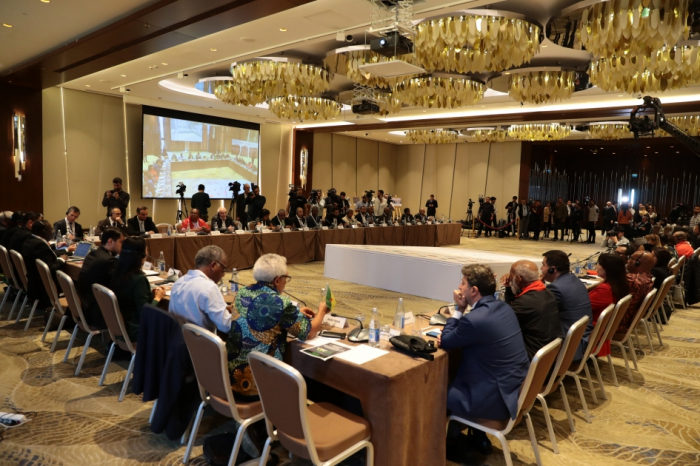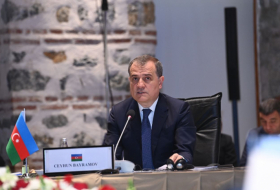Although the struggle for independence of the peoples under colonial rule started mainly after the First World War, the collapse of this system coincided with the period after the Second World War. The intensification of the process led to the emergence of new independent states in the world's political landscape.
Yesterday and today of French colonialism
The fact that Paris was forced to recognize the independence of Algeria, which had been enslaved for more than 130 years, defined the successful end of the struggle of several African countries against French tyranny. However, France, which still has enough colonial territories in the world, keeps the overseas territories such as New Caledonia, French Polynesia, French Guiana, Martinique and Guadeloupe, as well as Corsica (the 4th largest island in the Mediterranean) as colonial lands under its control. On the other hand, during all these years, they did not end their policy of plundering the natural resources of the African countries freed from the colonial yoke.
At the moment, Paris is trying to open another page of neocolonialism policy in the South Caucasus, hoping to bring Armenia under its control. This policy is a continuation of France's efforts to realize its colonial intentions in the South Caucasus after the First World War.
That was then, and this is now
But the times are changing. Until recently, the countries of the African continent, which France kept under control, expelled them from their territories. The withdrawal of French military delegations from Mali in 2022, and from Burkina-Faso and Nigeria in 2023 was a hard and well-deserved slap on the face of official Paris.
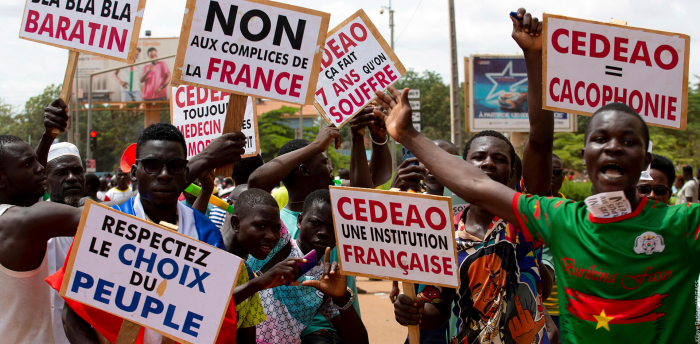
France's overseas colonies are also taking a tough stance against Paris's policy to throw off the burden of domination. In this regard, the Baku Initiative Group (BIG), established by the participants of the conference "Towards the Complete Elimination of Colonialism" in Baku within the framework of the ministerial meeting of the Coordinating Bureau of the Non-Aligned Movement chaired by Azerbaijan, became one of the important platforms. BIG supports the struggle for freedom of people in different regions of the world, who are still suffering from colonialism in the 21st century.
A month ago, BIG held a conference called "Decolonization: A Quiet Revolution" at the UN headquarters in New York. The main purpose of that conference was to discuss the opportunities created by the resolution of the UN General Assembly called "The International Fourth Decade for the Abolition of Colonialism" and to communicate France's colonial policy to the world community.
The new colonial policy of France was exposed at the international conference called "Neocolonialism: Human Rights Violation and Injustice" held in Baku on October 20, organized by BIG. At the conference, representatives of 14 countries, as well as French overseas territories (New Caledonia, French Polynesia, French Guiana, Martinique and Guadeloupe, as well as Corsica) revealed the true nature of the policy of official Paris.
Claudette Duhamel, the deputy chairman of the Movement of Ecologists and Democrats for independent Martinique, emphasized that France has learned everything about the people there, and even took away their spirit and traditions. As a result of the colonial policy here, agriculture was halted and the ecosystem suffered from an unredeemable blow. As a result, 90 per cent of the population was poisoned, and cancer increased dramatically among the people. And France doesn't even allow doctors to talk about this tragedy.
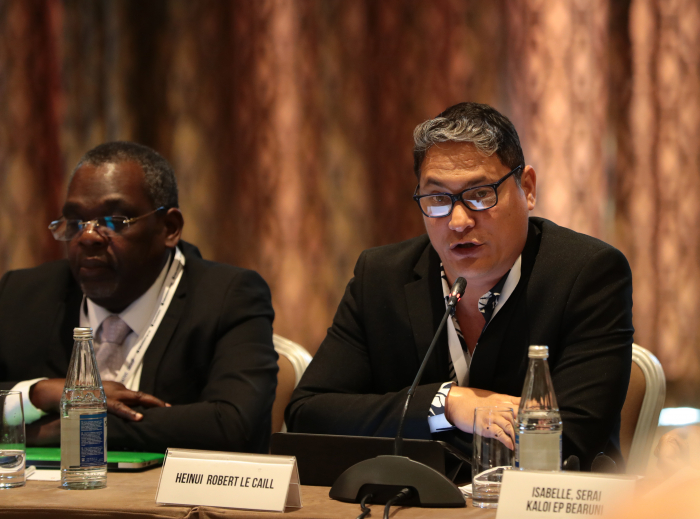
Heinui Robert le Caill, a member of the Assembly of French Polynesia, talked about the situation in his country, which has been under French rule for many years: "France is modifying the name of our country and calling it French Polynesia. They do not want to move away from the Pacific Ocean, which is in everyone's area of interest. The reason is that they implemented colonial policy towards the people living in that region. France is exploiting our natural resources. It employs the local population in hard work such as coal and gas extraction who are getting paid less than minimum wage. France earns $25 billion a year from Polynesia's coal and gas. It obtains 70 per cent of its gas from the countries that it keeps under colonial rule. Members of pro-independence groups were imprisoned by France. Every month, thousands of young Polynesians are conscripted into the French army and die in the pursuit of French colonialism. We demand the sovereignty that we have the right to".
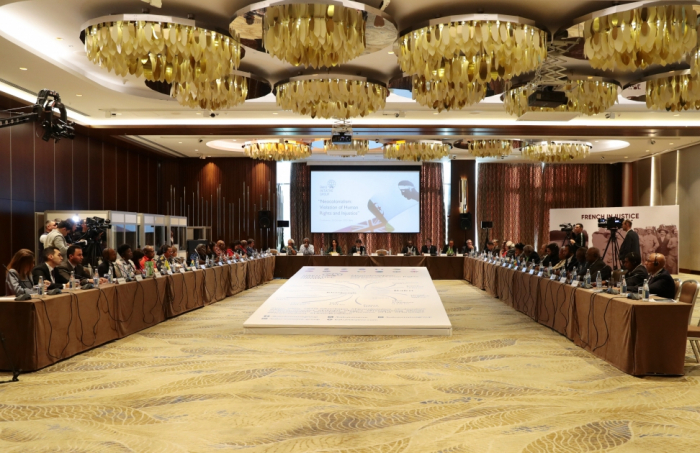
The representative of the Kanak Union, Davi Nicolas Bolo, reminded that Caledonia is still a French colony: "France takes the lands of the indigenous peoples from their hands and exiles the population. Active public figures are killed in the colonies. Illegal policies are conducted against our people. Our resources are being exploited by France. We are rich in natural resources, but we are also a country where the poverty level of the population is much higher. France has turned Caledonia into a region of financial dependence. International platforms are still silent on the colonial policy continued by France for almost 200 years. France does not fulfil its obligations and unemployment, hunger, and racism always reign in the region. "People are losing their cultural belonging. Young people are forced to go to foreign countries."
Jean-Marc Rodríguez, the mayor of Poggio-di Venaco on the island of Corsica, said that France had committed crimes by keeping them under colonial rule for years: "There are heroes who fought bravely for freedom in my homeland. However, the names of those people were not added to our history books. France wants to forget the language and culture of the people in its colonies, to destroy our nationalistic feelings. Repression has become commonplace for the Corsican people. Although France has been giving us false promises for years, in Corsica, only the people who are appointed by France come to power. France is far from the concepts such as voting and democracy. We ask for help from all international organizations to ensure Corsica's sovereignty.
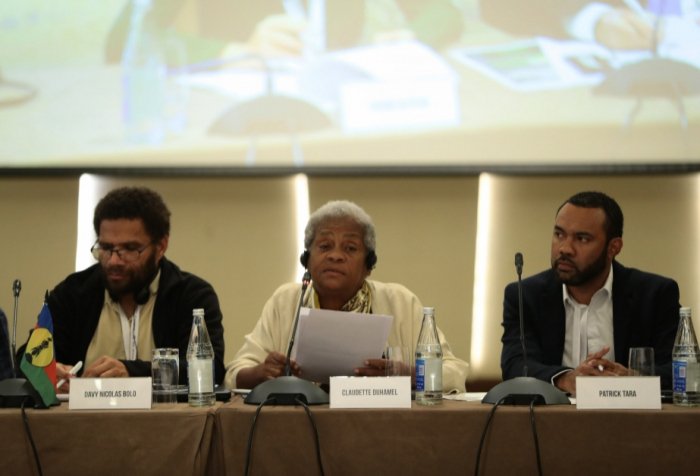
The Secretary General of the People's Union for the Freedom of Guadeloupe, located in the southern part of the Caribbean Sea, Jean-Jacob Bisepis states that his country, which is fighting against the policy of colonialism, is having difficulty in building a dialogue with France. France, which considers itself the cradle of human rights, hardly violates human rights.
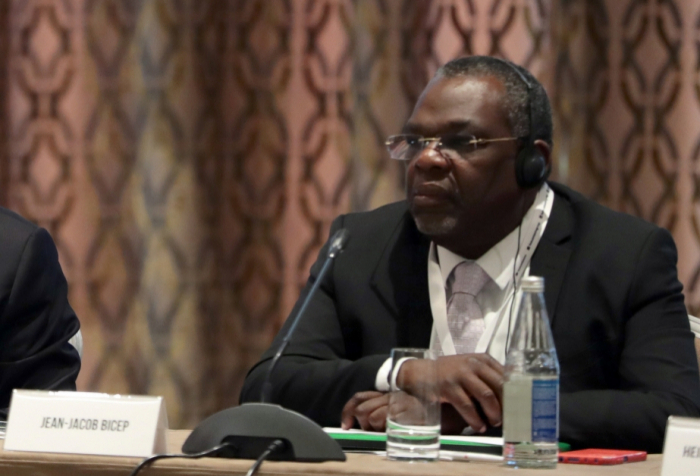
For four centuries, France has made Guadeloupe a hostage of its colonial policy by not only plundering its rich resources but also killing the pro-independence groups.
Maurice Pindard, a member of the French Guiana Movement for Social Freedom and Decolonization, emphasized that France does not accept the community here as a nation. While natural resources are being exploited by French companies, the country does not receive any revenue from these resources. Schools teach the lessons based on textbooks related to France, and French dominance is introduced in the cultural field.
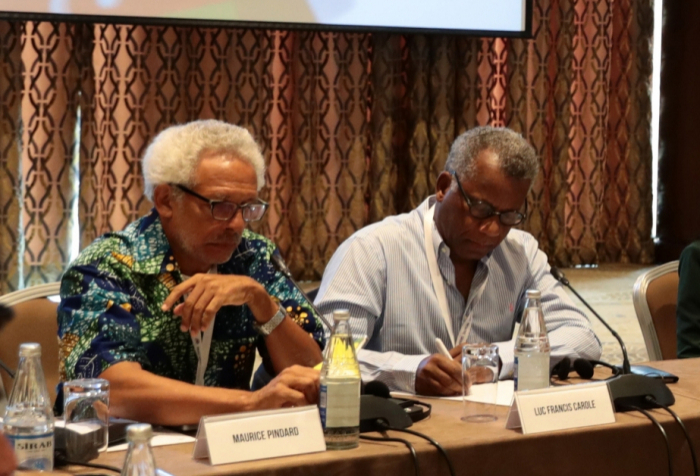
Maurice Pindard stated that people want to use the resources in their own country adding the significance of the support from the independent states.
The participants of the international conference "Neocolonialism: Violation of Human Rights and Injustice" held in Baku expressed their confidence that they will receive the full support of Azerbaijan and the President of Azerbaijan Ilham Aliyev personally within the framework of the BIG, which was brought up on the agenda of Baku.
Addressing the participants of the conference, the President of Azerbaijan, in his turn, uttered the need to unite all efforts against the racism and Islamophobia policy of those who are currently in love with the new colonialism, and mainly, France, whose mindset remains the same even after centuries.
Unlike many others, Azerbaijan, which stands out for its practical steps rather than its words, is an example to all as a state at the forefront of the issue.
Sahil Iskandarov, political scientist
AzVision.az
More about:








